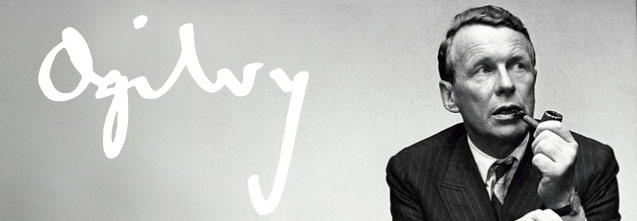Ogilvy’s 10 Writing Tips

We’ve seen a few other lists from Ogilvy. He’s a listy guy. I tried hard not to need this one as well, but it’s just too good.
- Read the Roman-Raphaelson book on writing. Read it three times.
- Write the way you talk. Naturally.
-
Use short words, short sentences and short paragraphs.
-
Never use jargon words like reconceptualize, demassification, attitudinally, judgmentally. They are hallmarks of a pretentious ass.
-
Never write more than two pages on any subject.
-
Check your quotations.
-
Never send a letter or a memo on the day you write it. Read it aloud the next morning — and then edit it.
-
If it is something important, get a colleague to improve it.
-
Before you send your letter or your memo, make sure it is crystal clear what you want the recipient to do.
-
If you want ACTION, don’t write. Go and tell the guy what you want.
David
Here’s some more writing tips on this site, and for all you freelancers out there (or wannabe freelancers), here’s a big ol’ guide about how to become a freelance writer.
